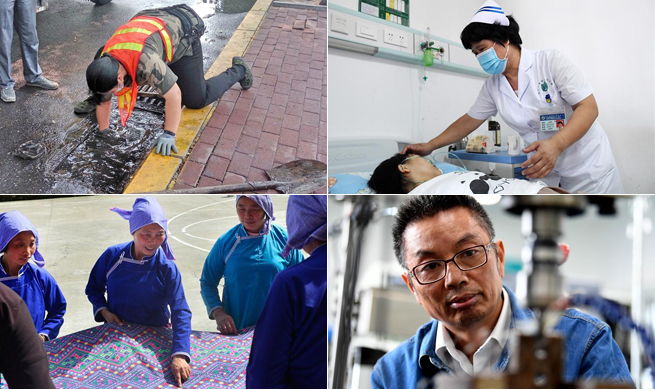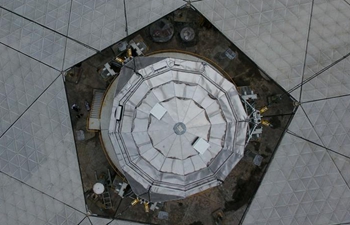UNITED NATIONS, Oct. 12 (Xinhua) -- Haiti has seen a significant turnaround from profound instability, widespread political violence, and a climate of lawlessness in 2004, the head of the United Nations peacekeeping mission in Haiti told the Security Council Thursday.
"Today, Haiti has a very different outlook. The Haitian people enjoy a considerable degree of security and greater stability; political violence has diminished; armed gangs no longer hold the population hostage, also thanks to the work of the national police - now 14,000 strong - which has grown significantly in numbers and capacity," said Sandra Honore in her final briefing to the council as head of the UN Stabilization Mission in Haiti (MINUSTAH).
MINUSTAH will close on Oct. 15 to be replaced the following day by a smaller successor mission, the UN Mission for Justice Support in Haiti (MINUJUSTH), which is mandated to assist the government in strengthening rule of law institutions, reinforcing national police capacities, and engaging in human rights monitoring, reporting and analysis.
Honore, who is also the UN Secretary-General's Special Representative for the country, noted that when MINUSTAH was established in 2004, State authority had been weak and limited to parts of the capital, Port-au-Prince, with the three branches of power either non-functional or non-existent, and a national police force that was overwhelmed by the multiple threats to public order and the rule of law.
Today, 13 and a half years later, "Haiti has a very different outlook, despite the many challenges still facing the country," she said.
All three branches of power are in place with the Executive and Legislative branches restored to full functioning, while the Superior Council of the Judiciary, created for the first time in 2012, remains in need of long-term fixes to allow it to fully play its role as the guardian of an independent and impartial judicial system.
These democratic institutions are complemented by the directly elected officials now in place at all levels of governance, for the first time in 10 years, denoting real progress in the implementation of the constitutional governance system, she said.
At the heart of these achievements stood the creation of stable political conditions, without which none of the above would have been possible.
"Looking ahead, I have no doubt that ... the international community and the United Nations will contribute to the sustainability of the progress achieved during the past 13 years in Haiti's stabilization and democratization process," she concluded.















